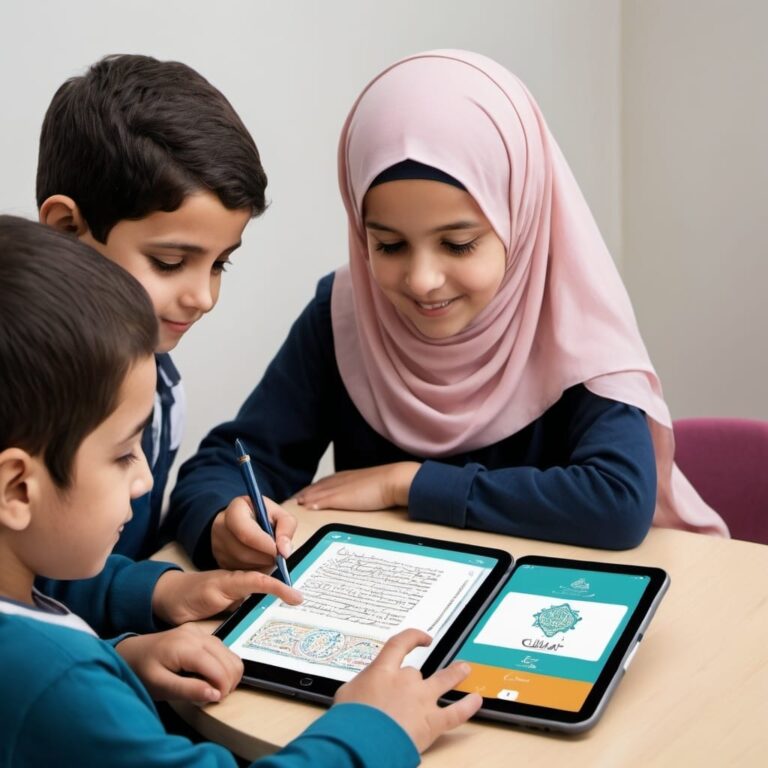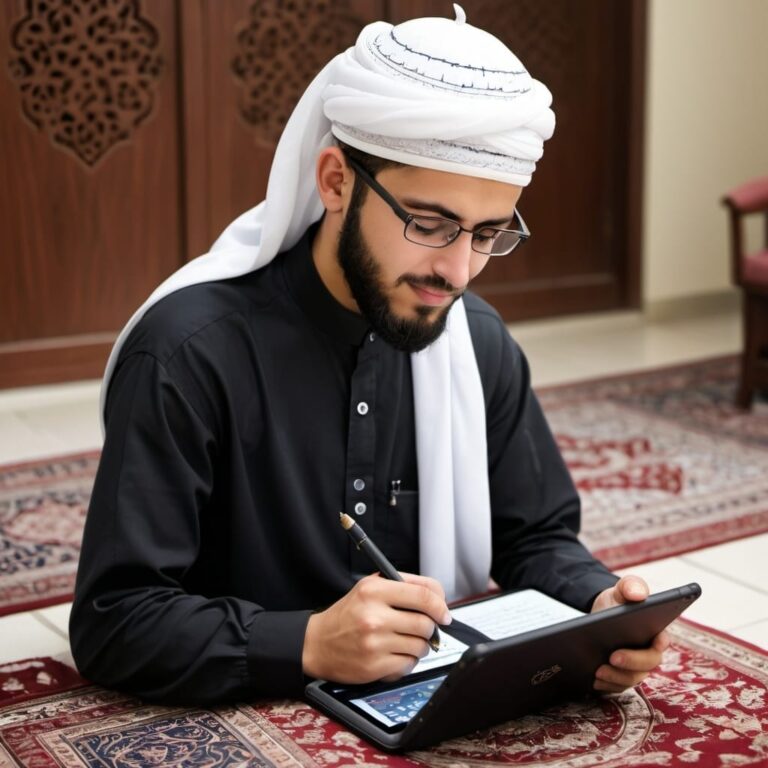The Unifying Caliph – Hazrat Usman R.A and the Compilation of the Quran
Hazrat Usman ibn Affan (R.A), the third Caliph of Islam, is a monumental determine in Islamic history. Known for his piety, generosity, and management, he performed a important position in preserving the Quran for future generations. His efforts in compiling and standardizing the Quranic text have had lasting impacts at the Muslim network.
Hazrat Usman R.A in Islamic History
Hazrat Usman R.A became a close companion of the Prophet Muhammad (PBUH) and married to 2 of the Prophet’s daughters. His tenure as Caliph is great for its expansion of the Islamic country and the consolidation of power. However, certainly one of his most lasting contributions turned into his role in compiling the Quran.
The Role of Hazrat Usman R.A in Compiling the Quran
During Hazrat Usman R.A’s Caliphate, the expansion of the Islamic kingdom brought about diverse recitations of the Quran. To make sure uniformity, Hazrat Usman R.A took the crucial step of compiling the Quran into a standard text. This attempt become essential to preserving the integrity and authenticity of the Quranic message.
Process of Compilation and Standardization
The compilation process involved accumulating various Quranic manuscripts and move-referencing them with the oral recitations of the Prophet’s companions. Hazrat Usman R.A shaped a committee, which includes Zaid ibn Thabit (R.A), to supervise this monumental challenge. They meticulously reviewed the text to ensure it turned into unfastened from discrepancies.

Preservation of the Quran for Future Generations
The compilation of the Quran under Hazrat Usman R.A’s leadership ensured that the Islamic holy text could continue to be unchanged and real. By distributing the standardized copies to special areas, he averted the emergence of divergent versions. This act of maintenance has allowed the Quran to stay consistent thru centuries.
Importance for Modern Quran Students
Understanding the efforts of Hazrat Usman R.A in compiling the Quran is important for current students of the Quran. It highlights the meticulous care taken to hold the holy textual content and underscores its importance in Islamic lifestyle. For students, this knowledge deepens their appreciation of the Quran’s authenticity and continuity.
Impact on Islamic Scholarship
The standardization of the Quran for the duration of Hazrat Usman R.A’s technology had a profound effect on the trajectory of Islamic scholarship. By presenting a uniform textual content, he laid the basis for students to interact with the Quranic text continually across extraordinary regions and cultures. This consistency allowed for a more based technique to the take a look at and interpretation of the Quran, leading to the established order of numerous colleges of concept inside Islamic scholarship. Scholars ought to build upon a unique, proper supply, fostering rich discussions and analyses that contributed substantially to fields such as Tafsir (Quranic exegesis), Fiqh (Islamic jurisprudence), and Linguistics. Furthermore, Hazrat Usman R.A’s efforts underscored the Quran’s position as a critical, unifying detail of Islamic intellectual lifestyles, facilitating a shared knowledge that transcended geographical obstacles and selling team spirit in the Muslim network. This ancient act of maintenance now not simplest helped keep the Quran’s integrity but additionally stimulated a long lasting way of life of scholarship that keeps to thrive today.
Significance of Hazrat Usman R.A’s Influence
The impact of Hazrat Usman R.A extends past the compilation of the Quran, extensively shaping the Islamic network and its governance. His management exemplified a commitment to justice and equity, fostering a experience of team spirit among Muslims for the duration of a time of speedy enlargement. Hazrat Usman R.A’s diplomatic and strategic method helped mitigate conflicts among various factions within the developing Islamic kingdom, reinforcing the ideas of community and collaboration. Moreover, his contribution to the Quran’s upkeep established a strong foundation for Islamic theology and exercise, making sure that future generations might have get right of entry to to an correct illustration of their religion. Hazrat Usman R.A’s legacy as a frontrunner dedicated to both religious and communal nicely-being maintains to encourage Muslims today, reminding them of the significance of integrity, expertise, and cohesion within their network.
The Significance of Quranic Preservation
The renovation of the Quran holds colossal significance now not handiest for the Islamic faith but additionally for the broader ancient and cultural narrative of humanity. It serves because the primary supply of steering for Muslims, imparting ethical, ethical, and felony frameworks that form daily lifestyles and spirituality. The act of preserving the Quran guarantees that its teachings continue to be intact, permitting believers to access its profound expertise unaltered by means of time or human blunders. Moreover, the Quran’s protection fosters a feel of unity among Muslims throughout the globe, as they proportion a not unusual textual content that transcends cultural and linguistic barriers. This uniformity aids within the development of a collective identity in the Islamic network, emphasizing unity and shared beliefs.
In addition to its non secular dimensions, the protection of the Quran has had considerable scholarly implications. By keeping an real text, students had been capable of interact in talk and debate surrounding its interpretation, giving upward thrust to a wealthy way of life of jurisprudence and exegesis that continues to adapt. The rigorous procedure initiated by Hazrat Usman R.A now not handiest safeguarded the text itself however additionally laid the basis for the methodological techniques to Quranic studies which might be typical today. Ultimately, the upkeep of the Quran is a testament to the care with which the early Muslim community appeared their sacred textual content, and it stays vital to the practice and know-how of Islam in the current world.
Scholarly Implications of Quranic Preservation
The renovation of the Quran, spearheaded through Hazrat Usman R.A, has a ways-achieving scholarly implications which have appreciably encouraged Islamic highbrow discourse. By presenting a regular and proper textual content, scholars have been able to have interaction deeply with the Quran, main to the development of numerous crucial methodologies for its look at. One excellent component is the emergence of Tafsir, or Quranic exegesis, where scholars dissect the text to extract meanings, context, and relevance to current troubles. This exercise no longer simplest enriches the understanding of the verses but additionally permits for diverse interpretations that mirror the dynamic nature of Islamic concept.
Moreover, the uniformity of the Quran has fostered collaboration amongst pupils throughout extraordinary regions. This trade of thoughts has spurred the status quo of educational institutions and centers dedicated to Quranic studies, thereby structuring a proper scholarly environment. Scholars along with Al-Tabari and Ibn Kathir, who contributed monumental works of Tafsir, have been able to draw upon a shared textual basis, ensuring their analyses were grounded in an actual source. This has in addition resulted in the emergence of jurisprudential faculties, as scholars debated and discussed legal rulings derived from the Quran, main to a wealthy tapestry of Islamic regulation that serves numerous groups nowadays.
Additionally, the renovation efforts have enabled continuous engagement with now not simply the non secular dimensions of the Quran, but its linguistic and literary features as nicely. Scholars of Quranic linguistics explore the eloquence of its original Arabic and its effect on the Arabic language and literature. This has stimulated poets, writers, and orators throughout Islamic records, emphasizing the Quran’s enduring legacy as a cornerstone of cultural and literary history.
Ultimately, the scholarly implications of Quranic preservation initiated with the aid of Hazrat Usman R.A are profound, laying the basis for an ongoing dialogue within Islamic scholarship that enriches faith, practice, and know-how, even as uniting a numerous network below a common textual background.
Frequently Asked Questions
1. Who turned into Hazrat Usman R.A?
Hazrat Usman R.A was the 0.33 Caliph of Islam and a near associate of the Prophet Muhammad (PBUH).
2. What turned into Hazrat Usman R.A’s role in Islamic history?
He performed a important position in expanding the Islamic country and compiling the Quran.
3. Why became it essential to assemble the Quran?
To ensure uniformity and save you divergent recitations as Islam unfold.
4. Who were concerned inside the compilation system?
A committee including Zaid ibn Thabit (R.A) changed into appointed with the aid of Hazrat Usman R.A.
5. How became the authenticity of the Quran maintained?
By go-referencing manuscripts with oral recitations from the Prophet’s companions.
6. What become the outcome of the compilation technique?
A standardized textual content of the Quran changed into created and allotted to diverse areas.
7. How did this effect destiny generations?
It preserved the integrity and consistency of the Quranic textual content.
eight. Why is it critical for college students to realize this records?
It deepens their appreciation of the Quran’s authenticity and continuity.
nine. What demanding situations did Hazrat Usman R.A face throughout the compilation?
Ensuring all versions have been accurately reviewed and standardized.
10. How did the compilation have an effect on Islamic scholarship?
It furnished a uniform textual content for observe and interpretation.
eleven. Is the Quran we’ve these days similar to the one compiled via Hazrat Usman R.A?
Yes, the textual content has remained unchanged considering that his compilation.
12. Why is Hazrat Usman R.A’s contribution vast?
It ensured the Quran’s maintenance and averted divergent variations.
thirteen. Can we find in advance variations of the Quran?
Earlier manuscripts and fragments exist, however the standardized textual content is what’s widely used.
14. How did Hazrat Usman R.A’s efforts gain the Muslim network?
It unified the community beneath a single, genuine Quranic textual content.
15. What can cutting-edge students examine from Hazrat Usman R.A’s approach?
The significance of meticulous care and authenticity in religious texts.
16. Are there any controversies surrounding the compilation?
Some historical debates exist, however the standardized textual content stays widely time-honored.
17. How did Hazrat Usman R.A deal with dissent at some point of the technique?
He sought consensus the various Prophet’s companions to ensure recognition.
18. What is the significance of distribution of standardized copies?
It prevented the spread of divergent recitations and maintained uniformity.
19. How does this history relate to fashionable Quranic research?
It gives context for the authenticity and maintenance of the Quran.
20. What have to students attention on whilst reading this history?
The meticulous procedure and the unifying effect of Hazrat Usman R.A’s efforts.
Learn Quran Online with Reliable Tutors
For the ones in search of to deepen their knowledge of the Quran, on-line structures offer on hand and dependable getting to know possibilities. With professional tutors, students can discover the rich history, together with the efforts of Hazrat Usman R.A, and gain a comprehensive expertise of the Quranic textual content.
Conclusion
Hazrat Usman R.A’s position in compiling the Quran is a testomony to his dedication and foresight. His efforts ensured the protection of the Quranic text for future generations, solidifying his legacy in Islamic history. For Muslims and students of the Quran, gaining knowledge of approximately Hazrat Usman R.A’s contributions is not handiest educational but also a profound reminder of the importance of retaining spiritual historical past.








